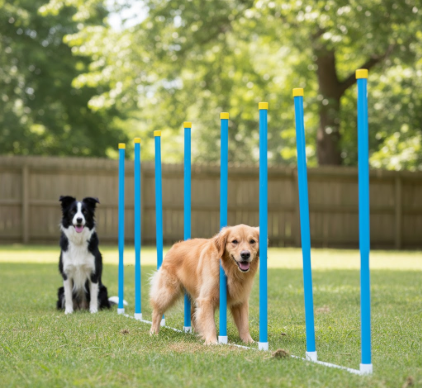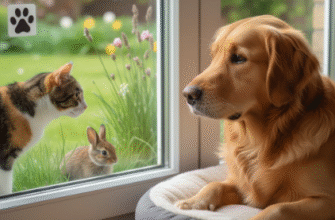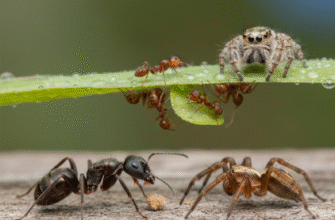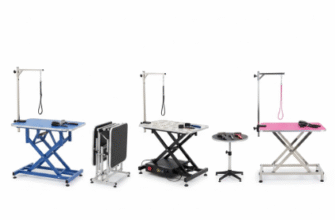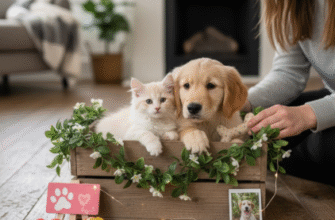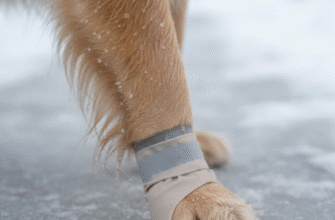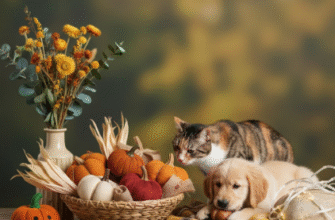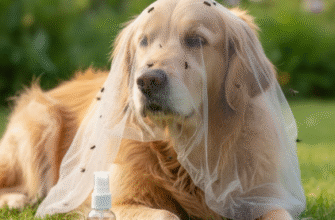Thinking about adding a dash of excitement to your dog’s backyard playtime? Agility is a fantastic way to engage your pup’s mind and body, and weave poles are a cornerstone of any agility course. While professional setups can be pricey, crafting your own set of DIY weave poles is surprisingly straightforward and budget-friendly. It’s a rewarding weekend project that provides endless fun for you and your furry friend, strengthening your bond while building their confidence and coordination.
Building your own equipment lets you tailor it perfectly to your space and your dog’s needs. You control the materials, the spacing, and the height, making it ideal whether you have a tiny terrier or a lanky Labrador. Plus, there’s a certain satisfaction in watching your dog master an obstacle you built with your own hands!
Why Go DIY for Weave Poles?
The most obvious advantage is
cost savings. Commercial-grade agility equipment often comes with a hefty price tag, reflecting its durability and adherence to strict competition standards. For casual backyard fun, however, such expense isn’t always necessary. PVC pipes and connectors are inexpensive and readily available at any home improvement store, making this a project that won’t break the bank.
Beyond the budget, DIY offers
customization. Competition weave poles have standard spacing (typically 24 inches), which can be challenging for beginners. When you build your own, you can start with wider spacing to help your dog learn the weaving motion more easily, gradually moving the poles closer together as their skill improves. You can also adjust the height and number of poles based on your dog’s size and your available space. Got a small yard? A set of six poles works great. Training for competition? Build a set of twelve.
Finally, it’s a
fun project! If you enjoy simple building tasks, creating something functional for your pet provides a great sense of accomplishment. It’s a chance to get hands-on and create a personalized training tool.
The beauty of this project lies in its simplicity. You won’t need exotic materials or specialized equipment. Here’s what you’ll typically need:
Materials:
- PVC Pipe: Schedule 40 PVC pipe is recommended for its durability. A common diameter is 3/4 inch or 1 inch. You’ll need enough pipe for the upright poles (e.g., 6 or 12 poles, each 36-40 inches long) and for the base structure if you choose that design. A standard 10-foot length of PVC pipe is usually cost-effective.
- PVC Pipe Caps: One for the top of each upright pole to provide a finished look and prevent water collection.
- PVC Connectors (for base frame design): You’ll need T-connectors and potentially cross-connectors depending on your base design. Count how many connection points you’ll need for your chosen number of poles and base layout.
- PVC Cement/Primer (Optional but recommended): For permanently joining the base frame pieces, ensuring stability. If you want to disassemble it for storage, you might skip the cement, but it could be less sturdy.
- Measuring Tape: Essential for accurate cuts and spacing.
- Marker: For marking cut lines on the PVC pipe.
- Sandpaper (Optional): To smooth any rough edges after cutting the pipe.
- Decorative Tape or Paint (Optional): To add color or stripes to your poles. Ensure any paint used is non-toxic and pet-safe once dry.
- PVC Cutter or Saw: A dedicated PVC cutter provides the cleanest cuts, but a hacksaw or miter saw will also work.
- Rubber Mallet: Useful for tapping pipes and fittings together securely, especially if not using cement.
- Drill (Optional – for alternative securing methods): Might be needed if you plan to stake the base to the ground.
Building Your Backyard Weave Poles: Step-by-Step
We’ll focus primarily on building a set with a base frame, as this is often the most versatile and stable option for backyard use, especially on different surfaces like grass, patios, or driveways. This guide assumes a 6-pole set, but you can easily adapt it for more.
H3>Step 1: Plan Your Design and Measurements
Decide on the number of poles (6 is great for starting). Standard competition spacing is 24 inches between the centers of the poles. For beginners or smaller dogs, you might start with 26-30 inches. Decide on the height – 36 to 40 inches is typical. Remember to account for the height added by the base fittings.
For a 6-pole, 24-inch spaced set using T-connectors, your base will need:
- 5 sections of pipe for the spaces between poles (e.g., approx 22-23 inches long each, depending on your T-connector depth, to achieve 24-inch center-to-center spacing).
- 2 end sections for the base (length depends on desired stability, perhaps 12 inches each).
- 6 upright poles (e.g., 36 inches each).
- You will need 6 T-connectors for the uprights and potentially 2 end caps or elbows for the ends of the base frame.
Sketch it out! A simple drawing helps visualize the connections and confirm your pipe cutting list.
Step 2: Cut Your PVC Pipes
Using your measuring tape and marker, carefully measure and mark all the required lengths of PVC pipe based on your plan. Remember the mantra: measure twice, cut once!
Put on safety glasses. Use your PVC cutter or saw to make straight, clean cuts. If using a saw, you might want to lightly sand the cut edges to remove any burrs or rough spots.
You should now have:
- 6 longer pipes for the upright poles.
- 5 shorter pipes for the sections between the T-connectors on the base.
- 2 pipes for the ends of the base.
Step 3: Assemble the Base Frame
Lay out your base pieces on a flat surface. Start connecting the shorter base pipes using the T-connectors. Ensure the open socket of each T-connector faces upwards – this is where your upright poles will go.
For example, connect an end piece pipe to a T-connector. Then connect one of the spacer pipes to the other side of that T-connector. Attach another T-connector to the end of the spacer pipe, ensuring its open socket also points up. Repeat this process until all 5 spacer pipes and 6 T-connectors are linked in a line, with the final T-connector attached to the other end piece pipe.
Check your spacing. Measure the distance from the center of one T-connector’s upward-facing socket to the center of the next. Adjust pipe lengths slightly if needed before cementing, or just ensure a snug fit if not using cement.
Optional Cementing: If you want a permanent, rigid base, apply PVC primer and then cement to the inside of the fittings and the outside of the pipe ends before joining them. Work quickly as the cement sets fast. Allow the base to cure fully according to the cement instructions.
If you prefer portability or the ability to adjust spacing later, skip the cement. Use the rubber mallet to tap the pipes firmly into the fittings for a snug friction fit. This often holds well enough for backyard use.
Step 4: Attach the Upright Poles
Take your longer PVC pipes (the upright poles) and insert one into the upward-facing socket of each T-connector on the assembled base. Use the rubber mallet to ensure they are seated firmly and are standing reasonably straight. Again, you can choose to cement these in place for maximum stability or rely on a friction fit for easier disassembly.
Place a PVC cap on the top of each upright pole. This finishes the look and prevents debris or water from getting inside.
Step 5: Stability and Setup
Place your completed weave pole set in your desired location in the yard. If the base seems a bit wobbly, especially on uneven ground or if your dog is very enthusiastic, you can add stability. Placing sandbags or weights over the base frame pipes works well. Alternatively, you could drill holes in the base frame pipes or fittings and use tent stakes or landscape staples to secure it to the ground, provided the surface allows it.
Important Safety Checks! Always supervise your dog when using agility equipment. Ensure the weave poles are stable and won’t easily tip over during use. Check for any sharp edges on cut PVC or potential hazards before starting training. Introduce the weaves gradually and never force your dog through the poles.
Introducing Your Dog to the Weave Poles
Training the weaves takes patience and positive reinforcement. Don’t expect your dog to zip through them perfectly on the first try! Start by making it easy and fun.
Channel Method: If your base allows, or if you built two parallel base lines, you can create a ‘channel’ by setting the poles very wide apart initially (maybe 3-4 feet). Toss a toy or treat through the channel and encourage your dog to run straight through. Gradually narrow the channel over many sessions until the poles are closer to the standard spacing, prompting the weaving motion.
Guide Wires/Fences (Optional): Some trainers use temporary guide wires or low fencing panels set up outside the poles to help guide the dog into the weaving pattern. These are removed as the dog understands the concept.
Luring: Use a high-value treat or favorite toy to lure your dog through the poles in the correct weaving pattern (entering with the first pole on their left shoulder is standard). Keep sessions short, fun, and rewarding. Clicker training can be very effective here.
Consistency is Key: Practice for a few minutes several times a week rather than one long, frustrating session. Always end on a positive note!
Customizing Your Creation
Now that you have the basic structure, feel free to get creative!
- Paint: Use pet-safe spray paint (like Krylon Fusion for Plastic) to paint the poles bright colors. Alternating colors can sometimes help the dog visually. Let paint cure completely before use.
- Tape: Vinyl or electrical tape can be used to add stripes or patterns. This is less permanent than paint and easy to change.
- Adjustable Spacing: If you didn’t cement the base, you can experiment with different length spacer pipes to change the weave pole spacing as your dog progresses.
Building your own set of backyard weave poles is more than just a cost-saving measure; it’s an investment in quality time with your pet. Seeing your dog learn, gain confidence, and have a blast navigating an obstacle you created is incredibly rewarding. So grab some PVC, head to the hardware store, and get ready for some weaving fun!

